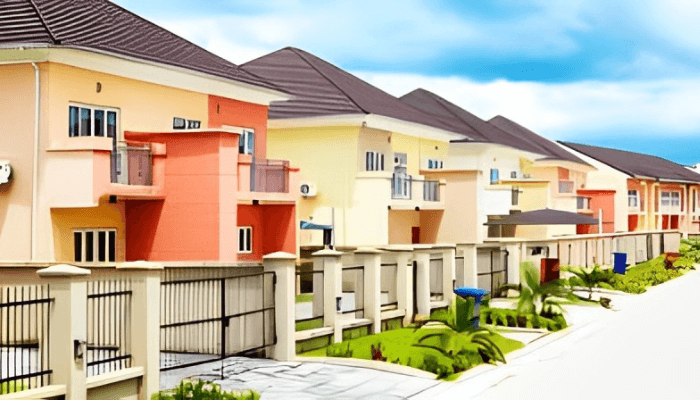Nigeria, often celebrated as the “Giant of Africa,” boasts a thriving population exceeding 200 million, with rapid urbanization propelling it toward becoming one of the world’s largest economies. Yet, beneath this vibrant growth lies a stark reality: a housing deficit exceeding 28 million units, underscoring a dire need for innovative solutions. For investors—both local and in the diaspora—this gap represents not just a societal challenge but a golden opportunity to generate transformative returns while addressing a pressing issue.
This article dives into the core of Nigeria’s housing crisis, presenting actionable insights and data-backed strategies for investors looking to capitalize on a market poised for exponential growth.
The Market Landscape: Opportunities Amid Challenges
Nigeria’s real estate market is experiencing a unique juxtaposition of challenges and opportunities:
- Projected Market Growth: By 2025, the Nigerian real estate market is expected to hit a staggering $2.61 trillion, with the residential sector alone contributing $2.25 trillion.
- Sustained Expansion: From 2025 to 2029, the market is forecasted to grow at a 6.91% compound annual growth rate (CAGR), reaching $3.41 trillion by 2029.
- Rising Demand for Luxury and Affordable Housing: While luxury apartments dominate the urban skyline, the real opportunity lies in addressing the middle- and low-income housing deficit.
For the discerning investor, these figures signify a robust and untapped market. Yet, to navigate this terrain effectively, it’s crucial to understand the systemic challenges fueling the housing deficit.
Understanding the Housing Crisis
1. Rapid Urbanization
Nigeria’s cities are expanding rapidly, with over 50% of the population expected to live in urban areas by 2050. Cities like Lagos and Abuja are already bursting at the seams, with real estate prices skyrocketing to levels unattainable for the average Nigerian.
2. Prohibitive Construction Costs
The cost of construction materials in Nigeria is among the highest in Africa. For instance:
- Cement Prices: Account for 40% of construction costs, making housing unaffordable for many.
- Logistical Challenges: Limited local production and high energy costs inflate material prices further.
3. Inefficient Land Use Policies
The Land Use Act of 1978 centralizes land control under state governors, creating bureaucratic hurdles and inflating acquisition costs. This regulatory framework discourages investments in affordable housing developments.
4. Limited Financing Options
With mortgage interest rates as high as 30%, only 0.5% of Nigerians can access formal home financing. In contrast, South Africa boasts a mortgage penetration rate of over 30%, highlighting the untapped potential in Nigeria’s financial ecosystem.
Strategic Entry Points for Investors
To capitalize on Nigeria’s housing market, investors need targeted strategies that address both demand and systemic inefficiencies.
1. Affordable Housing Developments
The greatest demand lies in affordable housing for middle- and low-income earners. Successful investors are shifting to cost-efficient construction techniques and locally sourced materials such as:
- Prefabricated Components: Widely used in Kenya to cut costs by 30%.
- Compressed Earth Blocks (CEBs): An eco-friendly alternative that reduces reliance on expensive cement.
3d designed homes & school in Africa
2. Smart Urbanization Projects
Urban planning is evolving toward transit-oriented developments (TODs), which integrate housing projects with transportation hubs and essential infrastructure. These mixed-use developments are particularly attractive to diaspora investors seeking long-term returns.
3. Technology-Driven Construction
Advanced technologies like 3D printing and modular housing are revolutionizing the real estate sector globally. Early adopters in Nigeria can reduce construction costs while appealing to environmentally conscious buyers.
4. Public-Private Partnerships (PPPs)
Collaborating with government entities offers access to incentives such as land grants, tax holidays, and subsidies. For example, the Lagos HOMS initiative demonstrates how PPPs can yield scalable housing solutions.
Policy Reforms and Financial Innovation
1. Modernizing the Land Use Act
Simplifying land acquisition processes and decentralizing control can create a more investor-friendly environment. Land banks and streamlined registration systems are proven tools for attracting investments in other emerging markets.
2. Expanding Financing Options
Innovative financial solutions are key to unlocking the market’s potential:
- Diaspora Bonds: Tailored for Nigerians abroad, these bonds can fund affordable housing projects while offering competitive returns.
- Micro-mortgages: Incremental financing models empower lower-income earners to build homes over time.
3. Infrastructure Investments
Strategic investment in roads, water supply, and electricity is essential for housing developments. For instance, the expansion of the Lagos-Ibadan Expressway has already boosted real estate values along its corridor.
The Bigger Picture: Why Investors Should Act Now
Addressing Nigeria’s housing crisis is not merely about filling a gap—it’s about capitalizing on a market that offers unparalleled growth potential. The benefits extend beyond profits:
- Economic Growth: Real estate development generates jobs across construction, manufacturing, and services.
- Social Impact: Affordable housing reduces crime rates and fosters community stability.
- Environmental Sustainability: Green building practices can position investors as leaders in sustainable development.
Your Role in Shaping Nigeria’s Housing Future
Whether you’re a seasoned investor or new to the market, Nigeria’s real estate sector offers opportunities to create wealth while making a tangible impact. By focusing on innovative solutions, adopting technology, and leveraging policy changes, you can position yourself at the forefront of a transformative era in Nigerian housing.
Do you have thoughts or questions about Nigeria’s housing market? Let’s discuss in the comments below. Your insights and experiences can help shape the future of real estate investment in Nigeria.




